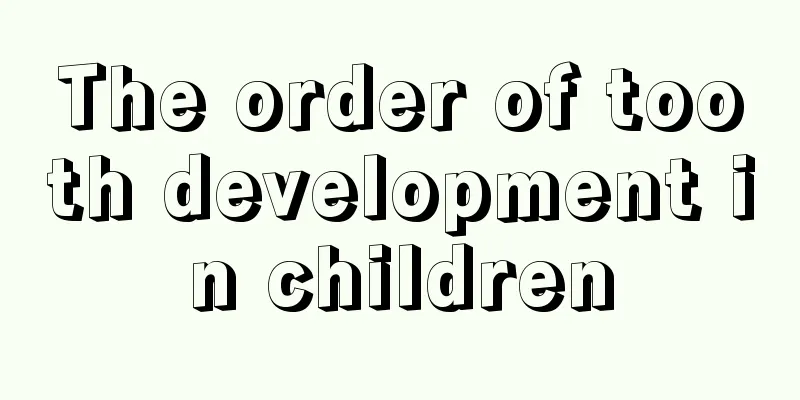The three "sorrows" of Chinese parents' parenting

|
To sum up the parents' experience in family education, the keys to success are nothing more than these four points: establishing a harmonious parent-child relationship; caring about both the child's intelligence and kindness; helping the child build self-confidence; and cultivating the child's ability to cope with setbacks. But at the same time, I would like to point out several problems in family education that I have observed, namely the sadness caused by parents' arrogance. Sadness 1: Why teach children to be “good” At present, there is a big misunderstanding in family education in our country - teaching children to be "good". When evaluating children, they often say "you are so good" or "you are not good", and regard "good" as the benchmark of education, which specifically means being obedient and doing things according to the requirements of teachers and parents. But it is worth mentioning that there is no corresponding word for “乖” in English. In the process of shaping such batches of "good kids", children are often deprived of the independent space to build self-confidence and a good self-image, and even their innovative ability is stifled invisibly. This is an educational concept that unilaterally emphasizes the sociality of children. Why are seven or eight out of ten girls when schools select the three best students nowadays? Why are there never any naughty children among the so-called "excellent students"? This is actually easy to understand, because compared to boys who are active, girls are more likely to calm down and study hard, not making noise or causing trouble, which completely meets the standards of "good" children recognized by our society. Such three-good students are certainly worthy of recognition, but I think those disobedient and naughty children also have their merits. For example, students who like to make mischief in class are often punished by the teacher, but every time after being criticized, they will immediately cheer up and continue to be naughty. Therefore, their ability to withstand "blows" is much better than those "good students", and self-regulating their mentality to withstand setbacks is also an ability, which enables them to face their future life with a positive and optimistic attitude, which will be of great benefit to them when they enter the society in the future. Expert’s viewpoint: “Disobedience” is not necessarily a bad thing. In fact, children sometimes do not do as their parents ask them to do and do not follow their parents’ instructions. This is a characteristic of children’s physical and mental development. Some psychologists believe that a 3-year-old child who does not resist is not a normal child. Even in children as young as five or six years old, rebellious behavior is very obvious. What's more, children nowadays live in an information-rich society. They absorb a lot of information every day and have their own ideas about people and things. If parents use adult standards to demand their children too early, it is not in line with the laws of children's physical and mental development, and it is easy to stifle children's nature, causing children to lose their most precious creative personality at an early age, which will leave parents with irreparable regret. The famous German psychologist Heitza once conducted the following experiment: he followed up 100 children who had strong rebellious tendencies between the ages of 2 and 5 and 100 children who did not have such tendencies until adolescence. The results showed that 84% of the former were strong-willed, independent-minded, and capable of independently analyzing, judging things, and making decisions. Among the latter, only 26% are strong-willed, while the rest are unable to make decisions and cannot take responsibility independently. This study shows that children with strong rebellious behavior are more likely to have a strong independent will when they grow up, which is exactly the quality that talents in the 21st century should possess. Sadness 2: Why are children narrow-minded? Against the backdrop of globalization, today’s family education is no longer the traditional “walled” family education, and the campus is no longer a campus in the traditional physical sense. Children have better teachers and hardware equipment than ever before. But what we need to reflect on is: Why have children's minds become narrow? They only care about things around them. The spirit of "discussing heroes over wine" in the past, the ambition to fight for the future of the country and for human ideals, is hard to find in today's young generation. Because our family education focuses too much on the growth of knowledge, we have no time to instill heroic ideals in our children. Internationally, it is recognized that Chinese families are highly supportive of school education, but this strong focus on knowledge is also an important reason why children's minds become narrow. Sadness 3: Why do children not want to go home? Most parents still narrow the concept of "children" to "students" when talking. A child's life is compressed into one aspect in this way, and the price to pay for success is too high. We should keep in mind that the concept of "child" is much broader than "student". In addition to being good students in school, children have many other roles to "play" at home and in society. Therefore, the family is not only a "learning home" for children, but also their "spiritual home". Why are so many college students reluctant to go home during holidays? It is because in their eyes, home is a "civilized prison" and their parents only know how to urge them to study all day long. Nowadays, some parents always like to accompany their children to do homework. I think this practice is questionable. . In short, children must be suitable for family education, and family education must be suitable for children. This is an interactive process. However, it should be pointed out that most parents currently make the relationship between family education and school one-way, and only know that family education revolves around school. As a result, they sacrifice many opportunities to cultivate children's qualities. In fact, schools can also assist in family education, and good parents should seize random educational opportunities. Don't limit your child's freedom with too many rules. Let your children do what they like and give them room to develop. If you have concerns, use the "joint decision" method to guide him: for example, if your child likes to play computer games, don't tell him "no playing", tell him that if his grades are good enough or he has finished his homework, he can play, but he can only play for two hours a week. Turn every "no" into an "opportunity" and transfer autonomy from you to your child. This not only cultivates independence, but also makes children work harder to do the "must-do" things for their own interests. |
<<: 10 qualities parents should pass on to their children
>>: Six major psychological defects of primary school students that parents should know
Recommend
What causes black spots on one-year-old baby's teeth?
Teeth are an important part of our lives and an i...
Why doesn't the baby eat?
As parents, the most troublesome thing is when th...
What causes tics in children?
Childhood tics are related to many factors. If yo...
What foods are good for newborns with calcium deficiency?
Newborns may also suffer from calcium deficiency,...
How to improve children's memory
How can we strengthen children's memory? When...
What to do if your child has red spots in his eyes
If the bruise is small and the baby has no other ...
Is it necessary to give children the chickenpox vaccine?
Varicella is a relatively common infectious disea...
What to do if your child has calf muscle pain
Sometimes, children will experience bone pain dur...
Can a six-year-old child's amblyopia be cured?
If a six-year-old child is diagnosed with amblyop...
Reasons for white spots on newborn's neck
Every parent hopes that their children have a hea...
How to pass gas when the baby falls asleep
Many mothers find that their baby’s belly is swol...
Why does drinking milk powder cause internal heat?
Some children grew up drinking milk powder when t...
Why does a two-year-old child cry when sleeping at night?
Children are in the stage of physical and mental ...
How many hours does the baby sleep through the night?
Some babies can sleep through the night when they...
Causes of cloudy urine in children
Now some children have turbid urine. Some childre...









